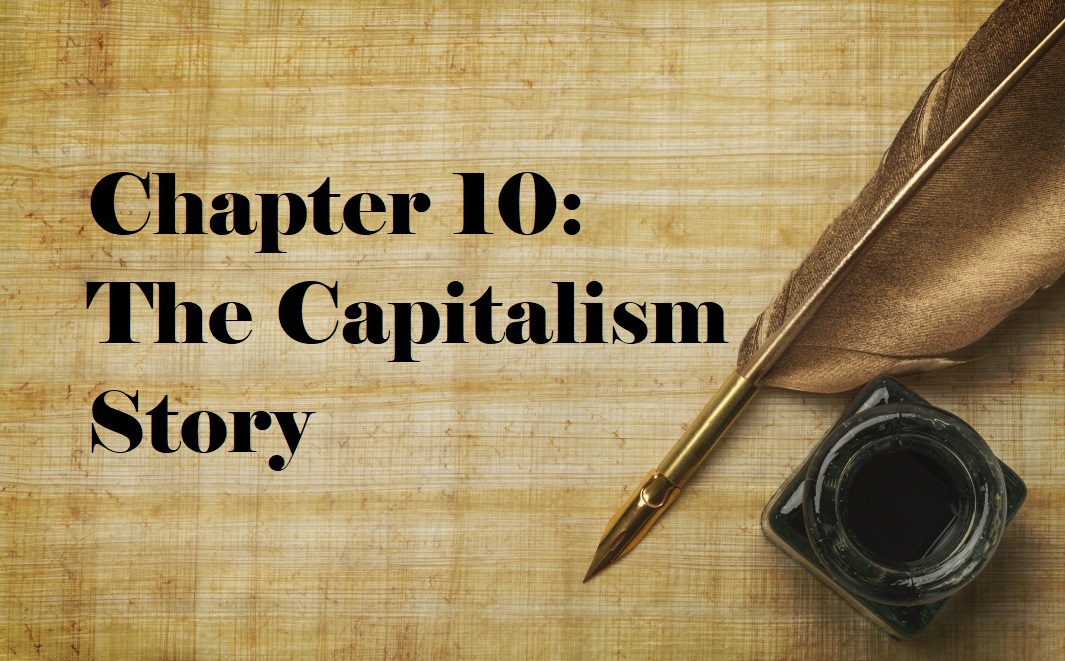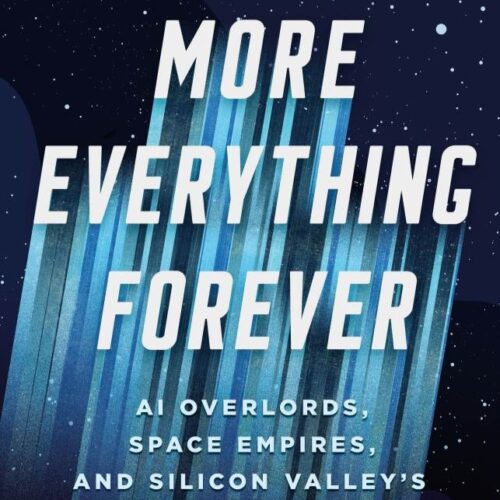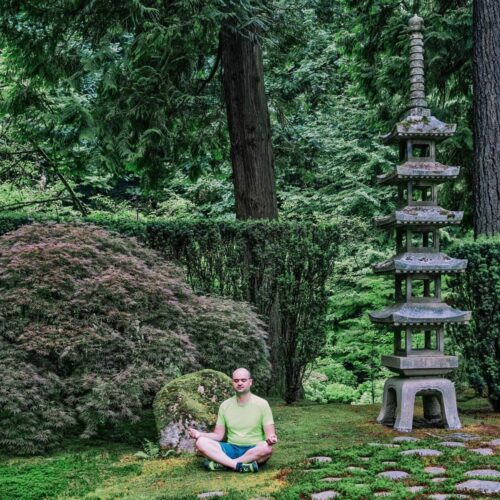Chapter 10: The Capitalism Story
Socrates / Podcasts, ReWriting the Human Story
Posted on: July 19, 2021 / Last Modified: July 19, 2021
Podcast: Play in new window | Download | Embed
Subscribe: RSS
 ReWriting the Human Story: How Our Story Determines Our Future
ReWriting the Human Story: How Our Story Determines Our Future
an alternative thought experiment by Nikola Danaylov
Chapter 10: The Capitalism Story
…by directing that industry in such a manner as its produce may be of the greatest value, he intends only his own gain, and he is in this, as in many other cases, led by an invisible hand to promote an end which was no part of his intention. Nor is it always the worse for the society that it was no part of it. By pursuing his own interest he frequently promotes that of the society more effectually than when he really intends to promote it. Adam Smith
The human mind (mine too) loves narratives. Stories. Stories are illusion. They are so powerful they invite delusion. Stewart Brand
The stories of science, technology, and progress are practically inseparable from the story of capitalism. And Capitalism is simply a relatively modern story told by great storytellers – be it Adam Smith or Milton Friedman. So, if money is the most popular story, then capitalism is likely the 2nd most popular one. And if we are to capture its story in a single word it is growth. But the key point is that capitalism requires growth not to deliver progress but to survive. So, if we halt growth capitalism won’t just halt – it will collapse. Therefore growth is the goal and progress is, at best, a byproduct.
There are many reasons why capitalism requires growth to survive – competition, demographics, unemployment, inequality, credit, mass production, energy consumption, etc. Fundamentally, however, capitalists go into business to make a profit. This means that if someone invests 100 dollars of capital they expect to receive back more than 100. And they are happy to repeat this process over and over again for as long as they can. Hence we call it capitalism – a self-sustaining system where capital gives birth to more and more capital. But if you start with 100 and end up with more than 100 we have growth because it measures the differences between your starting capital and what you end up with. That growth – or surplus, is the return on capital investment. If there is no return on investment there is no incentive to invest. So investment ends and the system collapses.
***
It was Protagoras who first claimed that “man is the measure of all things”. Capitalism replaced this inherent anthropocentrism with the free market so we can say that the free market is posthuman in the sense it doesn’t favor or put humanity in the center of its value system. Thus the free market became the measure of all things – be it material objects such as agricultural goods, consumer products, the animals, the water we drink and the air we breathe, or immaterial ones – such as political, religious, and other ideas or services. Since our value system reflects and is derived from our story and given that capitalism is our economic story, it is no surprise that growth has become the highest moral value in the realm:
you want democracy – make sure there is economic growth; want political freedom – don’t choke off growth; more opportunities for women and minorities – it comes with growth; more high-paid jobs – focus on growth; less pollution – don’t impede growth. That’s why Bill Clinton exclaimed: “It’s the economy, stupid.”
In short, in capitalism, never-ending growth is the most fundamental requirement. Everything else – be it political, social, legal, or ethical, is based on it and is therefore secondary. So, it is no surprise that when the story of Climate Change clashes with that of growth, growth always wins. Because the system is primed to self-sustain not to change or challenge itself. Furthermore, modern economics tells us that all products have a given value as well as alternative substitutes. And climate change, the environment, the animals, trees, rivers and lakes, even human beings have now become mere products within our global capitalist system. All in the name of growth, measured and valued within the story of the free market.
***
Capitalism is a complex story that gives birth to many other, smaller stories such as: the story of money, supply and demand, the “Invisible Hand”, “the Free Market”, “survival of the fittest”, “the lone entrepreneur hero”, “the myth of the self-made millionaire”, “the virtue of selfishness”, “egoism is altruism”, “the customer is always right”, “a rising tide lifts all boats” and so on. Those, in turn, have their own by-products such as short-term thinking, materialism, alienation, individualism, egoism, consumerism, planned obsolescence, environmental destruction, pricing everything but valuing nothing, and so on. Consequently, our relationship with life has stopped being mystical and never got to be scientific – it is economic. With one invisible hand – we save, and with the other – we destroy, all according to the “laws” of supply and demand, and the “virtue” of selfishness.
Epictetus and the Buddha both noted that events have no objective value. And if we look closely we ought to note that material things don’t have one either. Regardless of whether we are considering events or material things their value is subjective for it is derived by and created in story – the story we attach to them. The reality is we dream of owning and are willing to pay because of and for the story, not so much the product. The evidence is plentiful but perhaps best exemplified by the Significant Objects Project.
In 2006 journalist Rob Walker bought 200 thrift items for an average price of $1.25. These objects were all second-hand, they were not special or unique in any way, and had absolutely no intrinsic value of their own. Their unremarkable list included things like a plastic banana, a plastic motel room key, a small plastic bust of a horse head, and so on. Then Rob asked 200 authors to write a story about each of the items. Finally, Walker auctioned the items on eBay and received a total of $8,000 with an average “value” increase of 6,300% per item. [For example, the plastic horse head he bought for 99 cents was sold for $62.95 after a story was written for it.] Therefore it is not the product itself where value originates but the story attached to it. Change the story of a useless product and you change its value thereby making it valuable.
To conclude, capitalism is a story. A story that depends on growth and assigns a monetary value to everything in the world. A story that is reductionist in nature. Just like science reduced our universe to the physical world – i.e. physics. Similarly, capitalism reduces our universe to its market or monetary value – i.e. money. It tells how much something is worth as derived from the stories we tell. So it is story – first and foremost, that makes the difference for creating value, starting with the initial Angel investment pitch all the way to the final product and why we buy it. That is why Seth Godin claims that “Uber and Google achieved what they achieved because they were triumphs of storytelling, not because they were triumphs of technology. And so did Facebook.”
It is for this reason that Rolf Jensen also notes:
The highest-paid person in the first half of this century will be the storyteller. All professionals, including advertisers, teachers, entrepreneurs, politicians, athletes and religious leaders, will be valued for their ability to create stories that will captivate their audiences.








